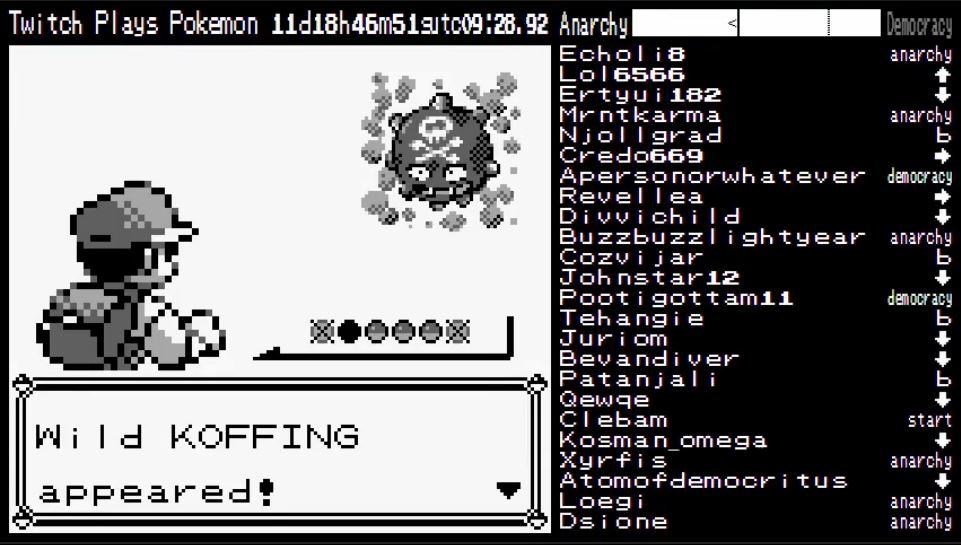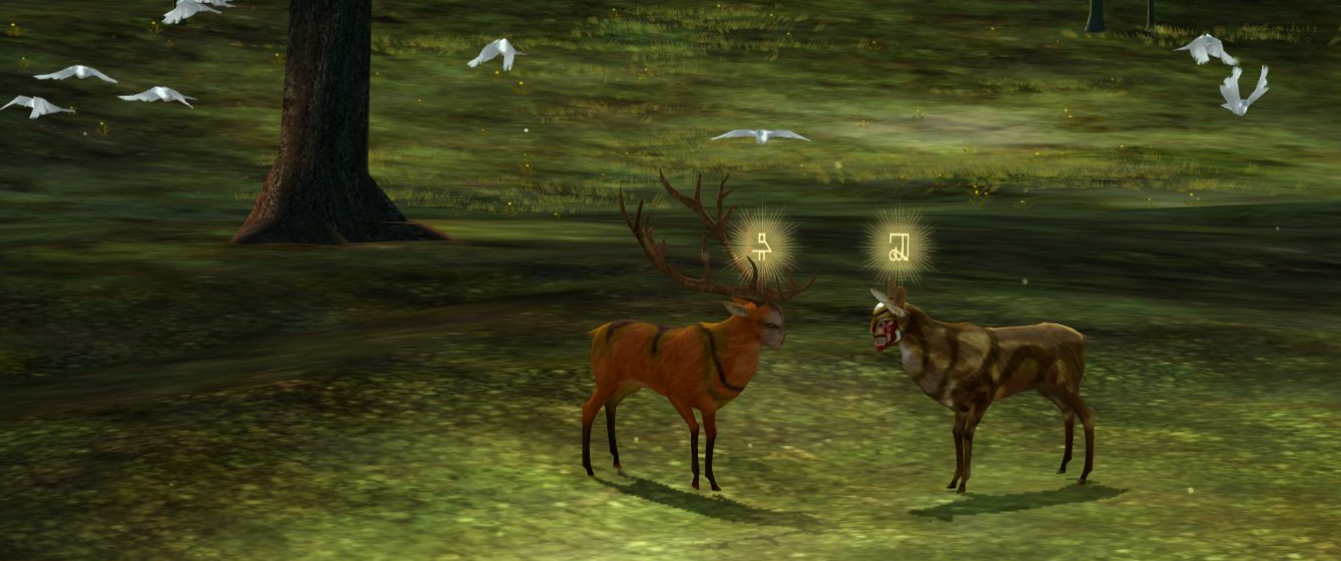A hands-on game design course focused on innovative and expressive forms of gameplay. In this installment of Experimental Game Design the emphasis is placed on all aspects of remote play: online multiplayer games, streaming culture, MMORPG interventions, transnational gaming communities.
If face-to-face activities are still disrupted due to the Coronavirus pandemic, the online component will be deeply integrated in the coursework, and will include workshops in Minecraft, Roblox, Second Life and Twitch. Topics will include: network protocols for online games, telecommuting tools, source control, streaming, and cloud gaming technologies.
The class consists in one long session per week that allows for extended prototyping exercises (mini-jams), technical tutorials, lectures, and in-depth playtesting sessions. Projects are team-based. Some programming experience is required.
Carnegie Mellon University School of Art
Term: Fall 2020
Course number: 60419
Classroom: Online + CFA 303
Days / time: 09:00AM – 11:50AM + 02:40PM – 05:30PM Friday
Professor: Paolo Pedercini – paolop [at] andrew [dot] cmu [dot] edu
Office: School of art 419A – 4th Floor
Office hours: By appointment
LEARNING OBJECTIVES
Upon completion of the course you will be able to:
> Work remotely in teams
> Use a range of tools and technologies for online applications not limited to games
> Use and design mediated environments with a broader critical and historical awareness
> Contextualize your own work within contemporary cultural practices
> Develop your personal style and artistic identity
> Add at least one piece to your creative portfolio
REQUIRED MATERIAL
Hardware: Computer. You don’t need a powerful gaming computer but a most work can’t be done on a phone or tablet. A reliable internet connection at home is necessary.
A webcam and a second screen are recommended but not necessary.
Software: all the programs used in this class are free. You may have to purchase some individual licenses and subscriptions to certain games depending on your project, the overall expenses should not exceed $100.
UNITS
Each of the three units will include frontal lectures, technical tutorials, warm-up workshops, brainstorming and team building exercises, playtest sessions, guest visits, online “field trips”, and critiques.

Playspaces
Topics: remote play before computers, ready-made game engines, chess by mail, Diplomacy, play by post/mail RPGs, ARGs, video chat games, twitch Games.
Assignment: design a remote multiplayer game that uses an existing communication system. It can be analog or digital, and it can involve custom software, but it has to take advantage of unique properties of a platform you didn’t make.
Tools: google docs, discord, mural, twitch API

Telepresence
Topics: Synchronous and asynchronous play, server-client model, authoritative server logic, client-side prediction, telematic art, net.art, MOOs, early virtual world, collaborative online toys, avatars: representation and inclusivity, version control, work / surveillance LARP.
Assignment: make an online multiplayer environment in which users can communicate in non-functional ways, create together, or just “feel” each other’s presence in a unique way.
Tools: Glitch, node.js, socket.io, p5.js, github
Exercises: client side predictive logic mod.
Design a playful space by modding an existing multiuser environment.
Schooltrip: Second Life, Minecraft (mods)
Guest visits: Auriea Harvey, Sabrina Calvo

Persistent worlds
Topics: A short history of massively multiplayer online games, Bartle’s player types, analog multiplayer mechanics, SCVNGR secret mechanics, emergent play, metagaming in MMORPGs, cheating, gold farming, cloud gaming, bug tracking, remote work and outsourcing.
Assignment 1, choose one:
DIY ethnography – investigate a subculture, an emergent phenomenon, or a specific practice within an online game.
DIY archeology – research a defunct or mostly abandoned online world. Present your findings in a video essay.
Assignment 2: make a multiplayer game with cooperative and persistent elements.
Tools: Unity, Collab, Visual studio live, normcore, OBS.
Exercises:
Find 10 concrete examples of Raph Koster’s Social Mechanics for Social Games.
Integrate co-op mechanics into a minimalistic game.
Starting from a minimalistic multiplayer game, add features that are likely to retain users and increase engagement.
Scooltrip: Roblox
Guest visit: Jason Rohrer
COVID-19 & Remote Teaching
This course is designed from the ground up to be taught online and to make the most out of this unfortunate situation. Broadly speaking, all sessions will start in a Zoom meeting and switch between 5 class modes:
Presentation
Prof shares his screen in the main Zoom session. Students mute their mics, text chat freely, and raise their “hand” on Zoom if they want to speak. Webcam video appreciated but not mandatory.
Technical demo
Prof shares his screen and the project he’s working on Glitch or Unity Teams. Students may share their screens as well. They are occasionally asked to come up with their own solutions, or to complete a part of the project.
Class Exercise
Prof gives a prompt and splits the class into breakout rooms or Discord channels. Prof is either summoned by a student for help or randomly drops in the breakout room.
Class Work Time
Students work on their projects in teams, keeping in touch via discord and various remote working platforms. All team members must be able to appear on Zoom or a synchronous chat for the duration of the class session.
Critique
Each student publishes their project on the Glitch Team, on Itch.io or on this site.
In real-time critiques the critted student shares their screen for a short presentation and a discussion ensues. Webcam video appreciated, especially when speaking.
In silent critiques and playtests the feedback happens on Discord.
Evaluation:
You’ll be assigned short group exercises every week for the first half of the semester (about 50% of the final grade), and you’ll be working on a final project for the second half of the semester (the other 50%). All deliverables, even when relating to theory, will be creative: no quizzes or response papers.
Final Grade breakdown:
Playspaces: 10%
Telepresence: 30%
DIY archeology/ethnography: 10%
Persistent Worlds: 30%
Class participation and workshops: 20%
Grading guidelines:
A. Outstanding concept and implementation. It looks and feels like a complete project, not an assignment or prototype.
B. The project is original and complete, all the core components are functional, but it feel unpolished and not ready to “ship”.
C. The game is incomplete and/or the idea is derivative.
D. The game doesn’t work, it has major bugs or is incomplete to a point that is impossible to get a clear idea of the user experience.
E. The student failed to deliver the assignment.
Making (and teaching) games is hard because there are different dimensions of success and failure.
Ideally your game:
Works as artwork – does something innovative, it’s in dialogue with contemporary artmaking, it tackles complex issues.
Works as experience – the player understands what to do, it’s aesthetically polished, it’s well presented and enticing, the difficulty level and learning curve are adequate for the intended audience.
Works as game – the gameplay is not broken, there are no dominant strategies, the gameplay succeeds in its own terms (a roguelike is replayable, an exploration game makes you want to explore, a match 3 game is addictive).
Works as software – it runs, the features are complete, it doesn’t crash, there are no bugs.
Extra Time Commitments:
You’ll be expected to work on your projects at home. Your progress will be evaluated every week.
POLICIES
> Attendance: three or more unexcused absences result in the drop of a letter grade.
> Absences: you are responsible for what happens in class whether you’re here or not. Organize with your classmates to get class information and material that you have missed.
> Tardiness: students who arrive late over three times without an excuse will have their class participation grade lowered to z e r o.
> Participation: you are invited, encouraged, and expected to engage actively in discussion, reflection and activities.
> Net addiction: there will be plenty of unstructured work time in which you’ll be able to take breaks and check social media. You are categorically forbidden to “multitask” during frontal lectures and critiques.
> Assignments: late assignments are only accepted with permission of instructor. You lose 10% of your points per day late up to a max of 7 days late.
> Office hours: office hours are by appointment but there will be at least two brief required one-to-one meetings for feedback and a general check-in.
INCLUSIVITY STATEMENT
It is my intent that students from all diverse backgrounds and perspectives be well served by this course, and that the diversity that students bring to this class be viewed as a resource, strength and benefit. It is my intent to present activities that accommodate and value a diversity of gender, sexuality, disability, age, socioeconomic status, ethnicity, race, and culture.
I will gladly honor your request to address you by your preferred name and gender pronoun. I commit to make individual arrangements to address disabilities or religious needs (e.g. religious events in conflict with class meetings). Please advise me of these preferences and needs early in the semester so that I may make appropriate changes to my plans and records.
Debate and free exchange of ideas is encouraged but I will not tolerate harassment, i.e. a pattern of behavior directed against a particular individual with the intent of humiliating or intimidating.
CONTENT/TRIGGER WARNINGS
Being in an art school, you should expect to be exposed to content that challenges your moral, ethical, and aesthetic values. In case of extremely graphic content I will warn the class in advance, but if you have a history of PTSD please let me know privately if there are types of content that are known to act as trauma triggers for you.
STRESS CULTURE
Collaborative work and projects also fulfilling other classes’ requirements are encouraged as long as it makes sense, and the other professors agree.
Official university language: Take care of yourself. Do your best to maintain a healthy lifestyle this semester by eating well, exercising, avoiding drugs and alcohol, getting enough sleep and taking some time to relax. This will help you achieve your goals and cope with stress.
All of us benefit from support during times of struggle. You are not alone. There are many helpful resources available on campus and an important part of the college experience is learning how to ask for help. Asking for support sooner rather than later is often helpful.
If you or anyone you know experiences any academic stress, difficult life events, or feelings like anxiety or depression, we strongly encourage you to seek support. Counseling and Psychological Services (CaPS) is here to help: call 412-268-2922 and visit their website at http://www.cmu.edu/counseling/. Consider reaching out to a friend, faculty or family member you trust for help getting connected to the support that can help.
